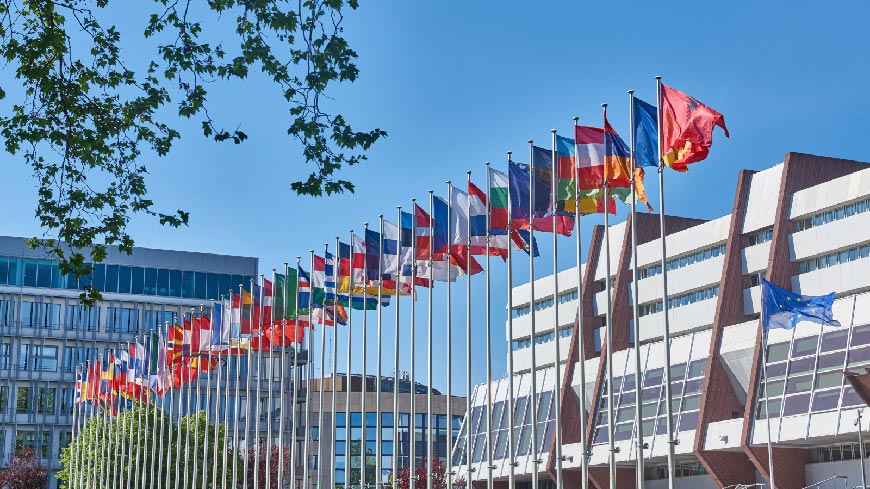Secretary General Marija Pejčinović Burić has called on member states to mark the fourth Summit of Heads of State and Government in Reykjavik (16-17 May) with a commitment to reverse democratic backsliding in Europe.
In her annual report, published today – Council of Europe Day – the Secretary General says the Organisation’s standards need to be applied across every aspect of Europeans’ lives. She also stressed the deep impact of Russia’s brutal, illegal and ongoing aggression against Ukraine. “The aggression against Ukraine has caused extraordinary suffering: hundreds of thousands of deaths, millions of refugees, horrifying stories of torture, rape and loss. We yearn for a return to peace: a sustainable peace based on justice”.
The report, with a first section looking at strengths and weaknesses in democratic institutions and a second focusing on the quality of the democratic environment, highlights challenges such as:
- increased violence against journalists, the use of surveillance to track and intimidate them and tactics ranging from detention to strategic lawsuits against public participation (SLAPPs) to prevent investigative journalists and others from doing their jobs;
- new laws and the misuse of existing ones to limit civil society, with public demonstrations wrongly classified as dangerous, excessive force used against demonstrators, non-governmental organisations (NGOs) faced with increased financial restrictions and bureaucratic hurdles, and the use of the legal system to undermine political opposition;
- a polarised political environment in which hate speech continues to grow, both online and offline, often targeting women and a range of minorities and vulnerable groups.
These negative trends are not found everywhere, and it is important to recognise that there also positive developments in some member states.
The data come predominantly from Council of Europe sources, such as monitoring reports, decisions by the European Court of Human Rights, Parliamentary Assembly reports, reports by the Commissioner for Human Rights and opinions of the European Commission for Democracy through Law (known as “Venice Commission”) and others.


